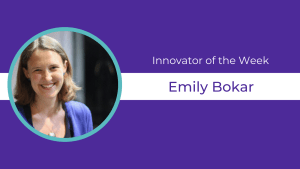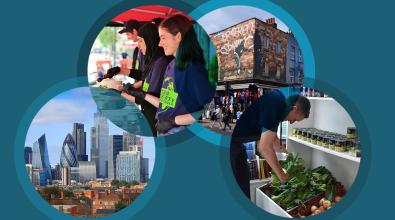Nudging seniors to claim tax savings

Name: Emily Bokar
Title: Innovation Strategist
City: Anchorage, Alaska
When Emily Bokar worked on the digital team of Barack Obama’s 2008 presidential campaign, she and her colleagues talked a lot about “ladders of engagement.” In other words, trying to convince casual supporters who’d signed up to receive email updates to get more involved—from buying a bumper sticker to making a donation to volunteering for the campaign.
Today, as an innovation strategist with the Anchorage innovation team, Bokar thinks along the same lines. Only now, her thoughts are about how to ladder-up residents to engage with government services available to them. “It’s being done in politics a lot right now, but I’m interested in bringing that to government,” Bokar said. “How do you take something that’s scary and hard to apply for, like food stamps, and use technology to reach the right people and bring them through the process?”
A good example is Bokar’s work on an i-team project that aims to get people age-65 and older registered for a local property-tax exemption. Her colleagues identified 1,200 seniors who were eligible for the tax breaks but weren’t getting it. Bokar sent each of them letters that used behavioral insights to nudge them to sign up. For example, the letter noted that 94 percent of eligible residents take advantage of the tax exemption—a little bit of “everybody’s doing it” peer pressure. Each letter also came with the resident’s Parcel ID already filled out, eliminating the need for people to dig around for that information.
The letters have been a hit. Last year, they resulted in 945 seniors signing up for tax exemptions worth an average of $2,400 each. (There's no budget hit to the city, although the change does slightly increase the mill rate all property owners pay.) Another round of letters went out a few weeks ago, and more than a third of the seniors contacted have already turned around their applications.
The letters to seniors, Bokar said, flip the usual burdens of bureaucracy upside down. “Instead of demanding that people come to us and wait in long lines, we’re actually going to them,” she said. “Some people couldn’t believe it was a government letter. It was almost too nice.”
Pro tip: "In government, we build a lot of communication tools that are one-way. We need to build feedback loops into the work we do to open two-way channels of communication with the public."


